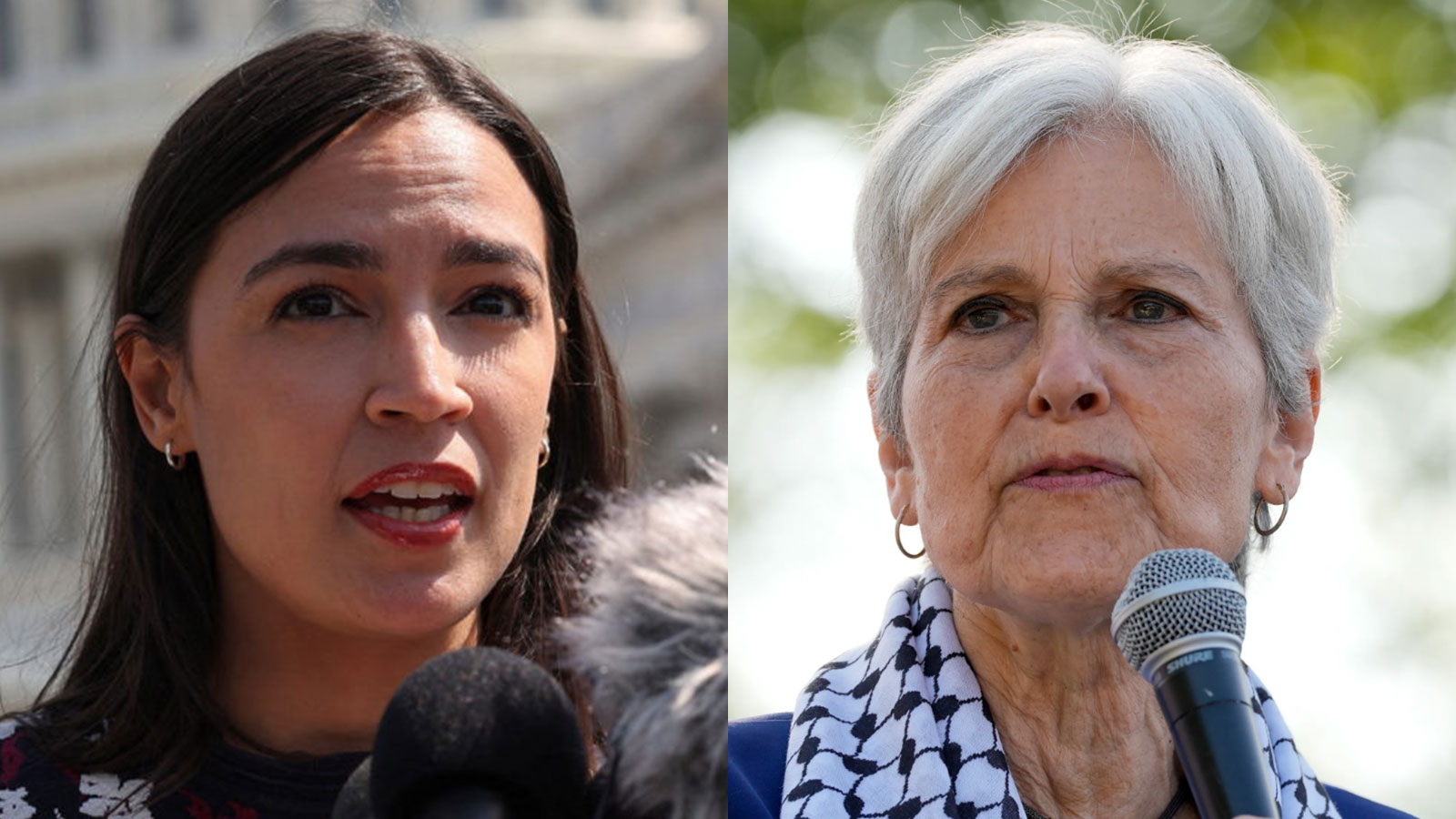Alexandria Ocasio-Cortez’s explicit critique of Jill Stein and the Green Party several days ago have motivated me to write about my 17 years in that organization and why I do not support it in any way today.
I was a member of the US Green Party from 2000 to 2017. Prior to 2000 I had worked with GP members in support of Ralph Nader’s first Presidential “campaign,” the one where he deliberately raised no more than $5,000 so that he wouldn’t be bound by federal election rules and wouldn’t have to file reports. It was the campaign where he really wasn’t running, more like allowing his name to be used by the nascent US Green Party to help them build themselves.
I went all-in for Nader/LaDuke in 2000. But as is often the fate of US third party efforts, his support eroded toward the end as many voters who liked him realized he had zero chance of winning and instead voted for either Al Gore or Bush. He ended up getting 2.7% of the vote.
In 2004 I played a very active role supporting insurgent David Cobb against Nader’s attempt to do it a third time. After a hard fought, months long campaign leading up to the GP convention in Milwaukee, Cobb won the nomination.
It was during this year that I and others in the GP began to put forward a strategy for how the GP should approach Presidential elections, what was called a “safe states strategy.” It was pretty simple. It was grounded in the belief that it didn’t help the GP to be taking the inaccurate position that there was no difference at all between the Dems and the Reps. They both were corporate-dominated but on a whole list of issues, from racial justice to voting rights to women’s rights and lgbtq rights, supporting unions, etc., the Dems were better.
Because of this fact—a fact which, 20 years later, GP members like Jill Stein continue to deny—the best way to build the GP was NOT to run in battleground states but, instead, to focus the campaign on the 30-35 or more states where it was virtually certain which corporate party was going to win. This would nullify the very real spoiler problem, which would mean more people willing to check out the GP and potentially join it. Instead of getting a vote total in the very low single digits, not exactly a showing of political strength, this focus on the non-battleground states—“don’t waste your vote, vote for the consistently progressive party, since we know who’s likely to win in this state”—would mean many more GP votes.
What has been the concrete result of the GP rejecting this approach and consistently running Presidential campaigns every four years in battleground states?
In 2004 there were about 225 GP members who were in elected office, almost all of them low-level offices like school board, water board, etc. Today Jill Stein says there are 144. There are no GP members who have been elected to a state house or senate seat and, of course, none to Congress. It’s a pretty dismal record for 20 years of existence.
Those of us who took the “safe states” position were in a decided minority then, and today, I am sure, anyone who advocated for it would be very unpopular. The GP has become a narrow, tiny party of true believers, destined to get at most 1% or so of the vote. Of course, that would triple the vote total of their Presidential candidate, Howie Hawkins, in 2020.
I remember when it was that I decided I had had it with the GP. I was at a national People’s Summit conference in Chicago in the summer of 2016 organized by National Nurses United and many other progressive groups and individuals who had come together after active involvement in the historic Bernie Sanders Presidential campaign. I was one of those people. On the second day of this event, attended by thousands, I looked up onto a screen that was projecting tweets about the convention that were being posted. I was shocked to see one from Jill Stein explicitly calling out this event and those who organized it as being “sheepdogs for the duopoly.” These supporters of independent socialist Bernie Sanders were all about corralling progressives into the Democratic Party, Stein was saying.
The GP, and others supporting them, don’t get it on mass politics. They believe in ideological purty before anything else. Unless you’re ideologically pure, they would say, you will never be able to bring about the transformational, revolutionary changes needed. Purity comes before anything else.
Twenty years of this approach have made it clear this is a losing strategy. The national US Green Party is a failure because of its rigid and narrow electoral approach.
Source: TedGlick.com
Ted Glick has been a progressive activist, organizer and writer since 1968. He is the author of the recently published books, Burglar for Peace and 21st Century Revolution. More info can be found at https://tedglick.com
Featured image: Alexandria Ocasio-Cortez and Jill Stein















